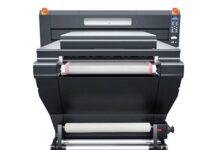All businesses from a huge multi-million Rand company to smaller businesses like a restaurant and a hairdresser are totally dependent on a constant supply of water.
An Abeco water tank is a worthwhile investment for any business and community. Having a water tank will set you apart during a water crisis. It will ensure your business can continue as normal. No jobs and no revenue will be lost. The more water you have in the ‘bank’ the more of a competitive advantage you will have.
When the severe drought hit Cape Town in 2018 most restaurants’ favourite meals were taken off the menu because they required too much water to prepare. Imagine not being able to order pasta!
A top restaurant in Cape Town created a disposable plate and Drought Kitchen. The drought kitchen involved a revised menu with dishes that did not need a lot of water to prepare, and the disposable plate was a picture frame within which each course was served on a disposable board. It is stated that close to 87% of businesses lost more than half their revenue due to the drought.
Agriculture was hardest hit with close to 50 000 layoffs. Irrigated agriculture was severely impacted by the drought. Farmers in the Western Cape were solely reliant on water from the dams for domestic consumption and for agriculture.
Abeco water tanks would have alleviated the severity of the water crisis. Jobs and businesses could have been saved if proper planning to save water for times of crisis had been in place.
Water storage tanks save jobs, they save money, they save businesses, and they save our food supply. In short, they uplift and save communities.
The Cape Town water crisis was a warning to us all to plan ahead. Climate change in Africa is becoming more and more of a reality. Droughts have been on the increase resulting in a decrease in food production and Africa’s communities are becoming even more vulnerable.
Abeco Tanks has been installing their hygienic water storage tanks to African countries for close on 40 years. Africa is fast learning that water is their most valuable commodity.
“Our water tanks have contributed to the economic growth and well-being of African communities. They have helped to save and develop businesses and as a result have created jobs,” says Mannie Ramos Jnr, COO of Abeco Tanks.
In 1983 Abeco tanks was established in Johannesburg, South Africa. Today they have a 269,000-square-foot manufacturing plant that is manned by 150 qualified boiler makers, welders, operators, supervisors, and quality control staff, some of whom have been with Abeco for 30 years.
They design, manufacture and install underground, elevated and ground-level water tanks.
The tanks are modular in design and highly mobile. They can be bolted together as circular, rectangular or customized water tanks and can hold from 1800 to 50 million litres of water.
The need of each client is assessed and a recommendation for the size of the required tank is given. Abeco Tanks can supply L-shaped, U-shaped, half panels and other odd shapes to manufacture a water tank that will fit into a client’s space restriction or around an obstruction.
All of the steel components are hot-dipped galvanized and the steel panels are cold-pressed using high-yield stress drawing quality steel. The hot-dip galvanized steel protects against corrosion ensuring that the tanks will last for up to 40 years and sometimes even longer.
Our attitude towards water needs to change. It is not a given that water will always flow through our taps. We need to plan. With the electricity shortages in South Africa everyone is installing solar power and going “off-grid” – not being reliant on the government for the supply of their power. The same applies to water. We can no longer be totally reliant on the government to provide continuity of service.
We need to implement water-saving measures in our businesses and in our homes.
Here are some of the ways that we can help:
- Find ways in our businesses and our homes to decrease your water consumption on a daily basis. We have become wasteful when it comes to water. We take it for granted. During the Cape Town water crisis, many people found ways to reduce their water consumption. This should be continued even when there is a constant water supply.
- Install a greywater system. This is a system that reroutes used water or water that doesn’t contain any excrement or chemicals to other sections of the home that will be able to use it. Greywater is the water we bathe in and wash our clothes and dishes in. It is useful to flush toilets and irrigate our gardens.
- Install a rainwater tank that will harvest rainwater from the roof to be used in the garden or for flushing toilets.
- It is also important to maintain the plumbing to make sure there are no leakages.
- Install dual flush toilets and efficient taps with flow restrictors. Dual flush toilets use 20% of the water normal toilets use.
Educate your employees and your families on the importance of saving and storing water. We are all responsible to ensure that a water crisis does not affect our income and our way of life.
Article Provided by https://abecotanks.co.za/




























